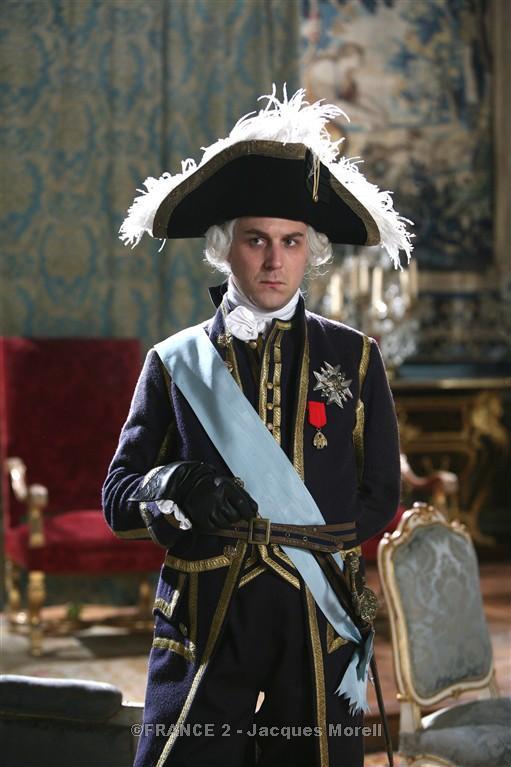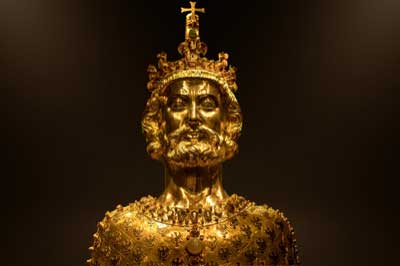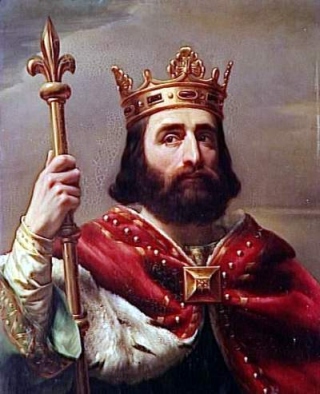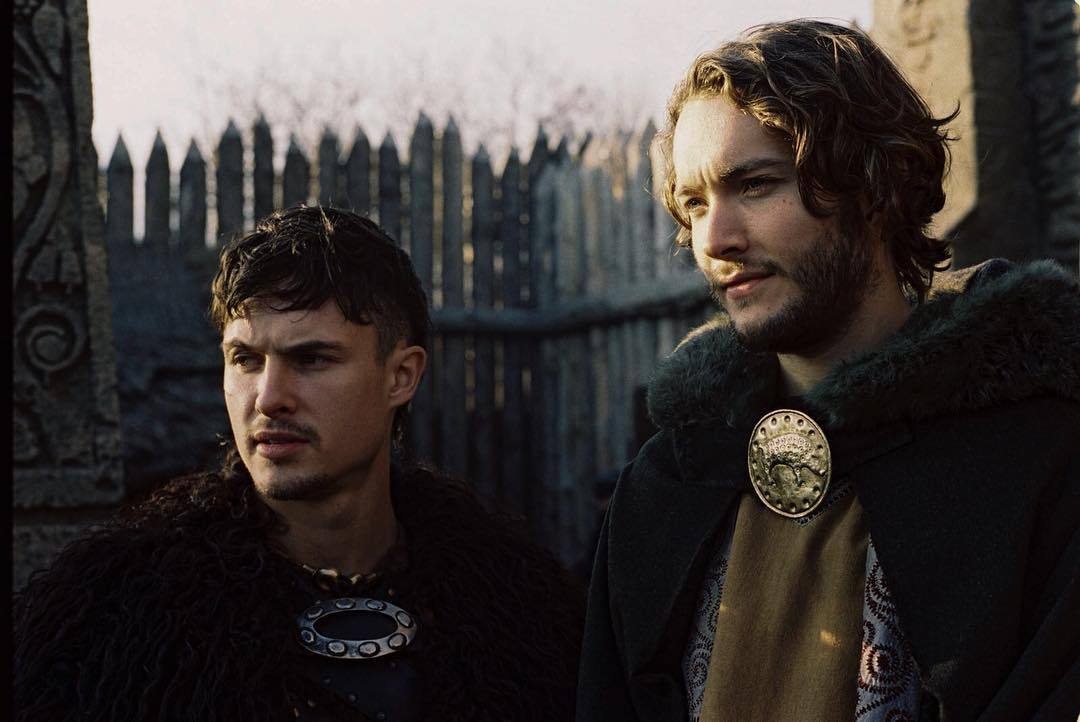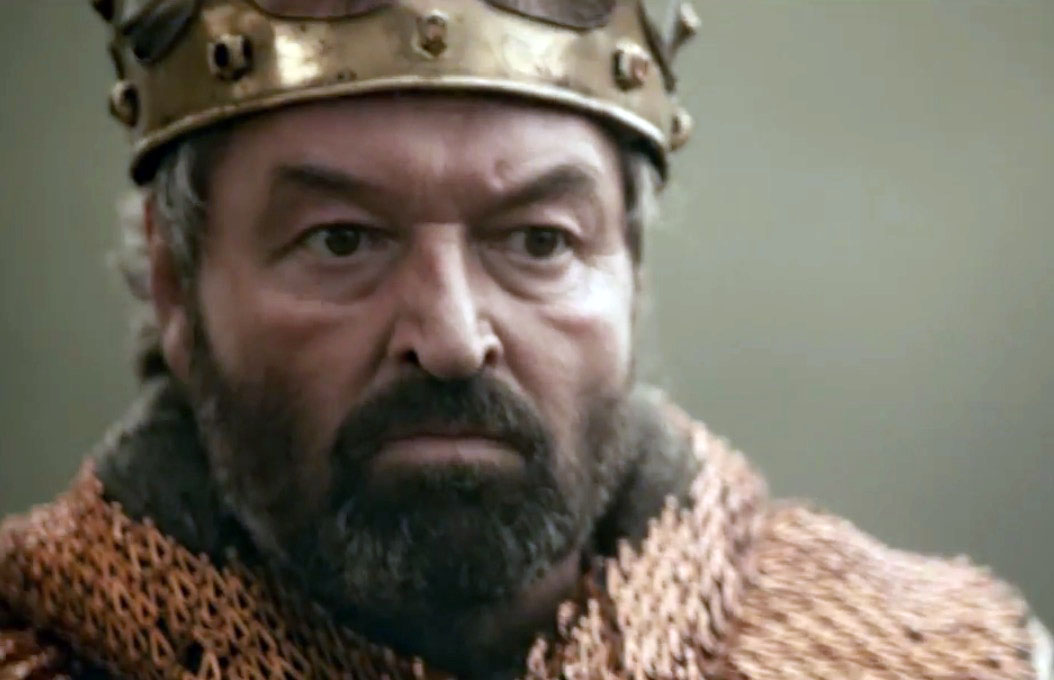Charlemagne
Charles the Younger
[1] Charles was the second son of Charlemagne to live to adulthood and became his prime heir when his older brother, Pippin the Hunchback, led a rebellion that failed in 792 when Charles was 20. In 796 a treaty was made between the Franks and Merica and Charles married Ælfflæd, the daughter of Offa. On Christmas Day 800 when his father was crowned Emperor of the Western Roman Empire (after 324 years of no Western Emperors), Charlemagne had Charles crowned King of the Franks; he was 28. His younger brother Pepin of Italy died of disease in 810 and then his youngest and only other surviving heir, Louis of Aquitane, died in 811 of a stroke. At the age of 41 he became the Emperor of the Western Holy Roman Empire and Ælfflæd was crowned Empress.
Charles did not expand the Empire except in Spain, where he reclaimed Barcelona from the Moors. He died at the age of 77. He broke tradition by having named only one heir to inherit the entire Empire and had had his son, Lothair, crowned as co-Emperor in 830 so there was no doubt who would succeed him.
[2] Lothair was Charles the Younger's only son, and only heir. Made Co-Emperor at the age of 35 in 830, he married Ingeltrude of Madrie and she swiftly provided three sons, the youngest of whom was shipped off to join the priesthood when it became clear the elder two would live to adulthood, marry and provide heirs. Lothair, however, had a very short reign of only six years - with his wife passing away after only two years as Empress. A mission to find a second wife for Lothair commenced, and Waldrada of Worms, daughter of Waldraith (whose father had been Charles I's brother-in-law) and Robert III of Worms, was pushed forward by her brother, Robert IV of Worms. But before the marriage could be consummated, the Emperor died of a sweating sickness and the new Empress was left widowed - so the imperial court began to maneuvere her as a bride for Lothairs unmarried second son, but he was resistant to the idea.
Lothair was replaced by his distant relative, Henry.
[3] Henry was a ruler from another Arnulfing line, from which the Karolings also came from. He was son of Dagobert, Count of Metz, married Ethelgarda, the daughter of Count Anjou, with whom he had three sons and four daughters. He was elected King of the Franks (855) and Western Roman Emperor (856). As an emperor, he led the Frankish troops to capture Zaragoza, leading further fights in Spain.
[4] After the death of Henry, many saw that his eldest son would become the next Holy Roman Emperor. However, Pepin, descending from Carloman, younger brother of Charlemagne, would plan to claim the throne. In the night, Henry's heir would be dead in his chambers, supposedly assassinated. Fearing that they would be next, Henry's surviving sons would flee from the realm and seek allies to fight for their claim. While the sons fled, Pepin would make a power-grab, grabbing the roles of Holy Roman Emperor and King of the Franks on the same week, leaving much distaste from the nobles . While in throne, Pepin would marry Hiltrude, a daughter of Henry to strengthen his claim. With Hiltrude, he would be cursed with only daughters. A son would not come. While many questioned Pepin's rule, he would try to gain the populace's favor, he led a major campaign in Spain, taking much land. He would plan to continue his invasion of Spain, until death befell the man. Viking raiders began sacking in the northern realm, and when Pepin came to face this threat at the Battle of Rouen.
In the beginning, the fight favored the Emperor. However, a contingent of soldiers led by Rollo The Walker would flank the Emperor's forces, and as he ordered his troops to hold their position, a spear was pierced into Pepin's chest. His men broke and the sight, and as the Viking army chased the Franks, Pepin died alone in the rot-filled battlefield. After his sudden death, many people wished to stake their claim on the Holy Roman Empire. Sons of Henry had made allies and wished to gain their birthright as Emperor. Nobles married to Pepin's daughters wished to have one of them be crowned Empress and have their dynasty rule afterwards. Even without any legal claim to the throne, many lords wished to wipe away current claims and place their houses at the throne.
Soon, Robert, third son of Henry, landed on the shores of where the rivers of Dordogne and Garonne split. William, spouse to Gisela, first daughter of Pepin IV, would have his wife crowned as Empress. The nobles of Austerasia would soon revolt after Gisela's coronation, saying a woman shouldn't rule the realm and naming Theuderic as the true Holy Roman Emperor, claiming he is descended from Childeric III, the last Merovingian king of the Franks, however with little truth to back it up. There is truly chaos in the realm under the reign of Empress Gisela.
[5] As war erupted across the whole of the HRE, it was split between four emperors. The first split came just after Empress Gisela's coronation, while she held held Aquitaine and Burgundy, Austerasia, Nuestria, and Saxony would declare for the young Theudric the "Merovingian" and spain would declare for Robert the Arnulfingian. the rest of the empire would remain silent on the matter until 898. In this one year, two more pretenders appeared. Lothair II, Pepin's nephew, who took Alemania and Bavaria, and Henry II, a cousin of Roberts, would take the italian holdings and be crowned Holy Roman Emperor by Pope Stephen VII.
With the battle lines drawn, conflict was immediate, but from an unexpected source. The first conflict broke out between the two Arnulfingian branches. Robert and Henry II's armys would clash repeatedly over the next two years, until, at the battle of Toulon in 899, Robert would be slain in battle, turning the spanish dominions over to the Popes Emperor. This would strengthen Henry II, but also made him a target for the other pretenders.
Then in 901, Theudric & Henry would ally to overthrow Lothair, who had just engaged Gisela's forces. within three years Lothair was a prisoner of Theudric's, and Gisela was on the back foot. By 910, Gisela had lost control of Burgundy and Aquitane was crumbling underneath her, she would surrender to Theudric the following year. this left only two claimants, Henry II, chosen man of the pope, and Theudric, chosen son of the northern empire. while a few years of peace would sit between the two emperors, by 913 they were once again at war. for nine years they would clash, until, in 922, Henry II and his lands were excommunicated by the rebellious Pope Theodore III, whom was formerly a cardinal from Theudrics own domains. From here Henry's power base collapsed, and Theudric was able to claim the throne. After he was coronated, Theufric would make the throne a Salic one, preventing any woman from holding the throne.
While he was victorious, Theudric would still have to fend off the other powers that had nibbled away at the empires borders in the quarter century long civil war. for the next fourteen years Theudric would spend time fighting against resurgent moors in spain, Byzantine incursions into italy, and german forces in east. Yet he would not be able to totally restore the empire, and would leave the work unfinished when he passed away in 936, leaving the throne to his son Clovis.
